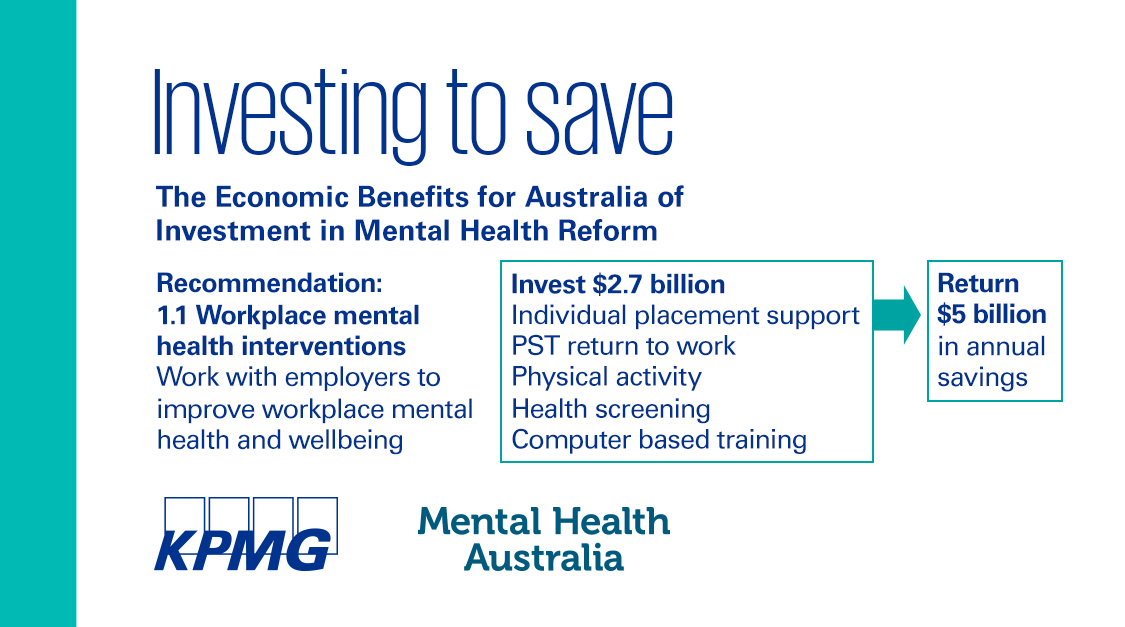
 |
 |
 |
 |
Speaking frankly... 
Australia's 'Top 5' young scientists of 2018
This week the ABC announced their “Top 5” scientists for 2018. Each year the ABC and the University of New South Wales seek to identify “Australia’s next generation of research talent.”
A few things struck me about this year’s award.
Firstly, this year’s Top 5 are all women. Whether we consider the role of women as leaders in society, or as leaders in science, there was a time not too long past where this would have been impossible. Women would simply not have been participating in science, and if they were, their contribution and role would not have been recognised. Whilst we still have a long way to go, here’s hoping we are reaching a time when women can pursue whatever careers they wish, and be recognised for their achievements and leadership.
Secondly, one of this year’s winners is a specialist in mental health research. I am encouraged to think this might flag mental health starting to move out of the fringes and into the mainstream. Mental health research has lagged well behind other areas of health research – underfunded, and poorly prioritised. If we are going to find lasting solutions and interventions to mental illness, we must invest in research. And we must do this even when the demand for front line services and crisis interventions risk shifting our focus from longer term investments.
Thirdly, Dr Belinda Liddell, the mental health researcher recognised in this Top 5, is a specialist in cross cultural differences in approaches to mental health. Her own biography describes her work as:
… trying to understand why different cultural perspectives change our mental and biological processes, particularly underpinning our emotions and our social functioning.
We live in a multicultural society and so trying to understand why different cultural perspectives affect our very basic process, including the way our brain perceives the world around us and processes information, might help us build bridges between different cultural groups and improve understanding.
As previously announced in this update, we are currently recruiting for new staff to work with our partners at the Federation of Ethnic Communities’ Councils of Australia (FECCA), and the National Ethnic Disability Alliance (NEDA), to work on the next stage of work to improve our approaches to multicultural mental health, building on the achievements of the former MHiMA project.
Australia is a rich, multicultural society, but we have largely neglected multicultural approaches to mental health. Our data is inadequate, and our investment falls far short of community need.
Let’s hope as the work of young scientists like Dr Liddell receive more public recognition, and as increased investment in multicultural mental health draws on the rich lived experience of those living at the intersection of cross cultural approaches to mental health, that specialist CALD services and programs and “mainstream” mental health services and programs alike can be enriched by new learnings.
And let’s celebrate the fact that a young female scientist is receiving national recognition for her expertise and leadership in this critical field of research.
Warm regards.

Frank Quinlan
Chief Executive Officer
Design of a pathway for NDIS participants with psychosocial disability
Mental Health Australia has provided a final report to the NDIA with recommendations on the design of a tailored NDIS pathway for people with psychosocial disability. Mental Health Australia held five consultation workshops across Australia with NDIS participants, carers, service providers, peak bodies, government officials and health professionals. The two overarching themes of the recommendations are:
- The NDIS must have arrangements in place to interact with people with psychosocial disability to inform them about the NDIS and prepare them for accessing the Scheme,
- A psychosocial disability strategy should be developed to ensure the NDIA and the Scheme’s response to people with psychosocial disability is appropriate to their needs, as well as the needs of carers and families.
The final report will be published on the Mental Health Australia website in the coming weeks.
Next WeekOn Tuesday, after the Queen's Birthday long weekend, I will be attending a Mental Health Expert Reference Panel meeting at the National Mental Health Commission in Sydney. On Wednesday I will be participating in a Carer Reform Working Group teleconference for the Department of Social Services in Canberra, and I will attend a Mental Health Reform Stakeholder Group (MHRSG) meeting in Canberra on Thursday. On Friday, Director Policy & Projects Josh Fear will be attending the NDIA CEO Forum. Also in the latter half of the week, we will be interviewing for new employees to work on the new national multicultural mental health project... An exciting time for Mental Health Australia as our team expands. |
Mental Health Australia Member Profiles
![]()
dNet – People Like Us has two main purposes: 1. to empower people like us, Australians living with depression and our families and friends, to make informed choices and find solutions to the challenges of living with depression; and 2. to empower people who have benefited from the depressioNet website and services in the past (‘dNetters’), to work together to provide the new dNet website and services for other people like us and experience the many benefits involved.
Websitte http://dnet.org.au/(link is external)

CatholicCare NT is a not-for-profit organisation, providing counselling services and programs to individuals, couples, families, children groups, schools and agencies across the Northern Territory. CatholicCare NT operate services in Darwin, Katherine, Alice Springs, Ltyentye Apurte, Finke, Titjikala,Tennant Creek, APY Lands, Nauiyu, Palmerston, Tiwi and Wadeye. Funding for their services is provided by both the Australian and Northern Territory governments.
Website - www.catholiccarent.org.au
News
NSW Budget: Record investment in workplace mental health

Dementia Australia welcomes ACT Government spending on disability services

Health system reforms to improve treatment of eating disorders
Renewed focus on early intervention and treatment of eating disorders has been praised by the Butterfly Foundation following the 2018 MAYDAYS for Eating Disorders campaign. Recent reforms such as: the inclusion of eating disorders in the Fifth National Mental Health Plan; increased online support; the launch of the National Agenda for Eating Disorders; and investment in workforce capacity building for eating disorder service providers; are growing the sector's optimism around future treatment of eating disorders.

Reminders
Save the date: Mental Health in the Emergency Department Summit

THeMHS pre-conference forums for consumers & carers

Mission Australia's 17th Annual Youth Survey

Nominate now for the 2018 Mental Health Awards
The Mental Health Foundation Australia (MHFA) is now accepting nominations for the 2018 Mental Health Awards. The Awards will recognise an Advocate of the Year and a Mental Health Organisation of the Year. These inaugural awards will be presented by the Governor of Victoria at Government House of Friday 26 October 2018 from 7:00 - 9:00am.

Call for abstracts for the Australian Psychosis Conference
The Australian Psychosis Conference takes the place of the Australasian Schizophrenia Conference, a meeting of researchers, clinicians, carers and consumers aimed at increasing understanding and improving treatment of people who experience psychosis. The conference will be held from 14-16 September 2018 at the SMC Conference and Function Centre, Sydney.

The National LGBTI Health Alliance is seeking an Executive Director
The peak body representing over 170 organisations and individuals working to improve the health and wellbeing of the LGBTI community are looking for an Executive Director. The successful candidate will be responsible for the implementation of a brand new organisational strategy designed to have a significant impact on the Alliance’s future, culture and organisational goals. For more info and to apply, click the link below.

Hocking Fellowship
Applications are now open for the 2018 Hocking Fellowship. SANE's Hocking Fellowship program provides an opportunity for Australians to undertake a fully-funded study tour in an area of interest that advances the public understanding of complex mental illness, improves treatment, support and the wellbeing of people affected by mental illness, and contributes to stigma reduction.


|
CONTACT US
|
 |